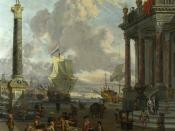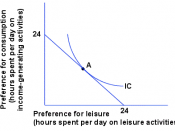Trade Theories and Realities: Why Economists Should Study Fairness
Theories in economics are both positive and negative for the general public. There are many current debates on whether one motion of economics is more beneficial to people than another. Such issues as Free trade can suggest an abomination or a godsend to social and economic order.
Opponents to free trade argue that there is a no win situation for the countries that do not dominate in import/export . This is because, there is an abuse of power by the businesses and firms that are manufacturing and producing in high volume in a country that is accepting low work and wage standards, to fulfil their free trade agreements and also accept the fact that without foreign business they cannot rely on their respective nation to accommodate their citizens with employment opportunities. Furthermore, employees who in the past had good incomes become reduced to the same vicious cycle of low paying jobs in volume and high turnaround because the market is in demand for such employees.
On the other hand, another part of the world's economy and business profit making is in a positive spin. Because of the low costs of production and the ability to move companies to lower wage paying nations (such as Mexico) there are reduced costs in goods and services (ie. Canadian and American consumer benefit) In turn, firms feel freedom to react quickly to the growing opportunity of cross border transferability and thus divide the economy into two opposing parties. There are lessons to be learned from what is "trade liberalisation".
Trade liberalisation is not a black hole where there is no ending in site. Many economists predict that the parabola of gains and losses to individuals will smooth out in time. In other words,


